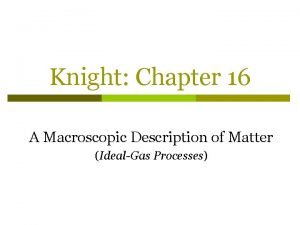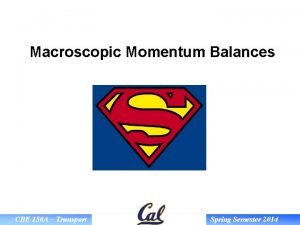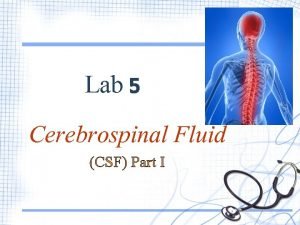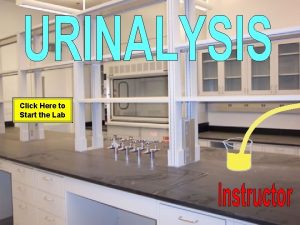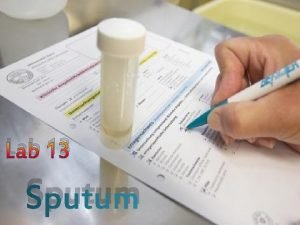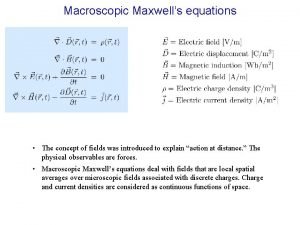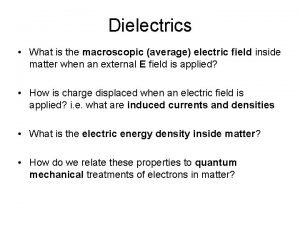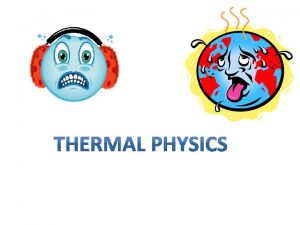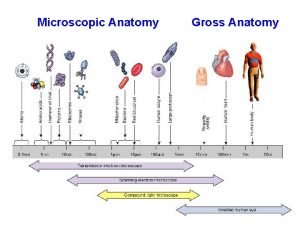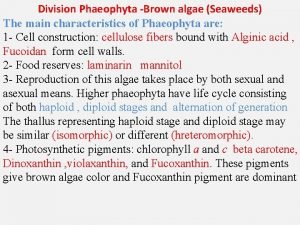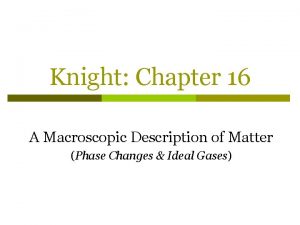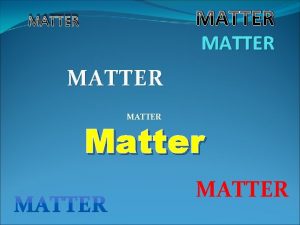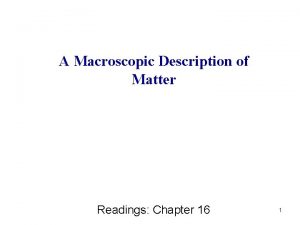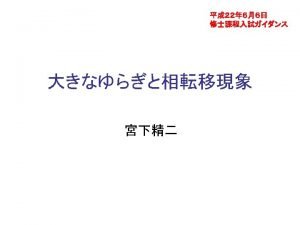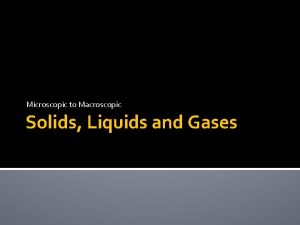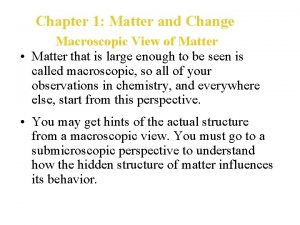Knight Chapter 16 A Macroscopic Description of Matter















- Slides: 15

Knight: Chapter 16 A Macroscopic Description of Matter (Solids, Liquids, and Gases, Atoms and Moles, & Temperature)

Prob. 15. 60 Water flows from the pipe shown in the figure below with a speed of 4. 0 m/s. a. What is the water pressure as it exits into the air? b. What is the height h of the standing column of water?

Quiz Question 1 An ideal fluid is pumped steadily up a vertical pipe with a uniform cross-section. The difference in pressure between a point at the top and at the bottom 1. 2. 3. 4. 5. is the same as it would be if the fluid were motionless. is greater at higher flow rates than at lower flow rates. is less at higher flow rates than at lower flow rates. does not depend on the density of the fluid. is zero.

Solids, Liquids, & Gases Solids. . § rigid macroscopic system consisting of particle-like atoms connected by spring-like molecular bonds. § each atom vibrates around an equilibrium position but otherwise has a fixed position. Liquids. . § nearly incompressible (the molecules are about as close together as they can get). § flow and deform to fit the shape of its container (molecules are free to move around).

Solids, Liquids, & Gases. . § § a system in which each molecule moves through space as a free, noninteracting particle until it collides § with another molecule § with the wall of the container. are fluids, and highly compressible.

Volume and density Mass density… with SI units: M for the system mass & m for the mass of an atom. Number density… with SI units:

Atomic Mass & Atomic Mass Number § Mass of an atom is determined primarily by: protons and neutrons. § Atomic mass number: § Atomic mass: § § atomic mass number. u is the unit of atomic mass.

Moles and Molar Mass Q: What is a mole, n? p The # of molecules contained in 1 mole of any gas is Avogadro’s number, NA, so where n n is the # of moles N is the # of atoms or molecules in a gas NA = 6. 02 x 1023 mol-1

More on moles… The # of moles in a system of mass M consisting of atoms or molecules with molar mass Mmol is p with SI units: p Q: What is the molar mass of Carbon 12? A: 0. 012 kg/mol Q: What is the molar mass of O 2? A: 0. 032 kg/mol p p p

Moles and Molar Mass If atomic mass m is in kg, the # of atoms in a system of mass M can be found from:

Quiz Question 2 Which contains more molecules, a mole of hydrogen gas, H 2, or a mole of oxygen gas, O 2? 1. H 2. O 2. 3. They each contain the same # of molecules. 4. Can’t tell without knowing their temperatures.

i. e. 16. 2: Moles of Oxygen 100 g of oxygen gas is how many moles of oxygen?

Thermometers & Temperature Scales Thermometers h § are used to measure the temperature of an object or a system. § The level of the mercury rises due to thermal expansion. § 3 different scales § Celsius § Kelvin § Fahrenheit

Temperature Unit Conversions Kelvin Temperature Scale n Absolute Zero : T = 0 K = -273. 15 C (Pressure of a gas -> zero) Celsius Temperature Scale n T = 0 C - Freezing point of H 2 O, T = 100 C - Boiling point of H 2 O Fahrenheit Temperature Scale n T = 32 F - Freezing point of H 2 O, T = 212 F - Boiling point of H 2 O

Quiz Question 3 Which is the largest increase of temperature? 1. An increase of 1 F. 2. An increase of 1 C. 3. An increase of 1 K. 4. Both 2 and 3, which are the same and larger than 1. 5. 1, 2, and 3 are all the same increase.
 Macroscopic description of an ideal gas
Macroscopic description of an ideal gas Canterbury tales knight description
Canterbury tales knight description Chapter 2 matter section 1 classifying matter answer key
Chapter 2 matter section 1 classifying matter answer key Macroscopic momentum balance
Macroscopic momentum balance Macroscopic energy balance
Macroscopic energy balance Csf and blood
Csf and blood Urinalysis lab answer key
Urinalysis lab answer key Macroscopic hematuria causes
Macroscopic hematuria causes Cheesy masses sputum
Cheesy masses sputum Maxwell's equations
Maxwell's equations Macroscopic electric field
Macroscopic electric field Macroscopic level meaning
Macroscopic level meaning Slidetodoc.com
Slidetodoc.com Cranial caudal
Cranial caudal General characteristics of phaeophyta
General characteristics of phaeophyta Is milk macroscopic microscopic or particulate
Is milk macroscopic microscopic or particulate
